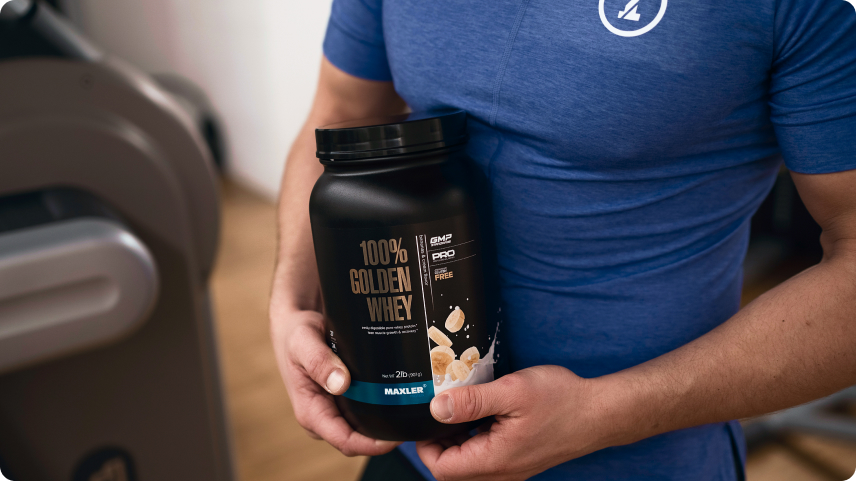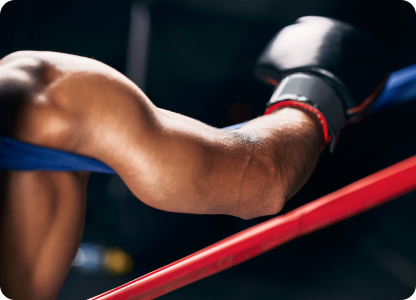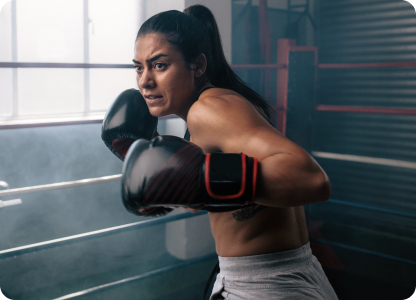Nutrition For Boxers 101

Boxing - a tough, individual sport where two people have to use all their power, quick reflexes and mental toughness to fight each other. One of the unique aspects of this sport is that it contains two different sets of rules for professional and amateur boxing, respectively
1. These rules affect scoring, duration of fights, and more.
Boxing is also a sport where opponents are matched by weight, which comes with a set of nutritional considerations for those that partake. Alongside that, boxers have a rigorous training, as they have to work on skills, body conditioning, and get competition-ready
2.
The sport consists of high-intensity aerobic and anaerobic activity
3. This means that they need to have a proper nutritional plan that helps to meet the energy demands of this sport. Let's dive into it!

Energy and Muscle: The Power of Nutrition
Boxers expend a significant amount of energy during training, making it essential to meet their macronutrient needs. Depending on the intensity of their regimen, boxers may require between 40 to 70 calories per kilogram of body weight daily, with professional athletes often needing even more4.
Carbohydrates are the body’s primary energy source during intense training. Muscle glycogen, which is derived from carbohydrates, gets depleted during workouts and must be replenished to support performance and recovery5.
Daily carbohydrate intake should be tailored to your training load. On lighter training days, aim for 4–5 g/kg of body weight. On more intense days, increase intake to 8–10 g/kg6. Consuming carbohydrates before workouts is especially important for endurance and sustained energy7.
For extended or high-frequency training, opt for simpler carbohydrates to promote faster glycogen resynthesis8. If your training session lasts longer than an hour, consider adding 30–60 grams of carbohydrates per hour to your hydration routine9.
Protein, Fats, and Hydration: Fueling Performance
Protein plays a vital role in muscle repair and growth, making it essential for boxers. It’s recommended to consume between 1.2–2 g/kg of body weight daily. In some cases, higher intake may be beneficial depending on your training intensity and goals. Focus on complete protein sources, which provide all essential amino acids. For optimal recovery, aim for 20–40 grams of protein within an hour post-workout10.
Need a convenient protein source? Maxler 100% Golden Whey offers 24 g of high-quality protein in a delicious, easy-to-mix shake – perfect for post-workout recovery or daily nutrition support.
Fats are another key macronutrient, essential not just for energy but also for reducing inflammation and aiding recovery. About 25–30% of your daily caloric intake should come from fats, prioritizing unsaturated sources like omega-3 fatty acids11. These fats help reduce post-exercise soreness and support overall health12.
For targeted support, try Maxler Omega-3 Gold. It’s a premium supplement designed to give your body the essential omega-3s it needs—whether you’re deep in training or preparing for competition13.
Hydration is just as crucial. Even a 2% drop in hydration can negatively impact performance and endurance. It’s recommended to consume between 0.5 to 2 liters of water per hour during and after exercise, depending on intensity, climate, and body size14.

Before the competition
A lot of boxers are looking to lose weight before a competition, trying to get a competitive advantage over others. Boxing competitions tend to match opponents by stature and weight15. This means that boxers need to come up with a weight loss strategy that is effective and works for them. Aggressive methods of loss may be tempting, but they carry with them psychological effects like tiredness and feelings of isolation, as well as physiological ones, like decreased muscle glycogen and higher heart rate16. These can be mitigated with proper planning17,18. As a guideline, aim to get at least enough energy to cover your resting metabolic rate. A general macronutrient breakdown can be as follows, 3 g/kg of carbs, 2 g/kg of protein, and 1 g/kg of fat19. Here are a few tips for when you’re losing weight before your competition:- Aim for a gradual weight loss, working on lowering fat content over water and muscle mass.
- Don’t go under 5% body fat if you’re male and 12% if you’re female.
- It’s extremely important for female athletes to ensure they’re getting enough energy during this process, to avoid relative energy deficiency (RED)20.
- Remember to strength train.
- Use supplements to your advantage – BCAAs help preserve muscle mass, while creatine and electrolytes can help restore the body after the weigh-in.
- Aim to get plenty of carbohydrates even when you’re losing weight21.


The World of Supplements
To meet the physical demands of boxing, athletes often turn to supplements to boost performance, speed up recovery, and support key health needs. Here are some top supplements that can benefit boxers:
- Caffeine – This powerful stimulant helps combat fatigue and can enhance anaerobic performance, which is essential for the short bursts of high-intensity activity in boxing26. Try Maxler Caffeine 200 for a quick energy boost before training. A recommended dose is around 6 mg per kg of body weight.
- Electrolytes – Proper hydration is critical for recovery and performance, especially after weigh-ins or intense sweat sessions. Electrolyte drinks make water easier for your body to absorb. Maxler Electrolyte Powder offers a convenient and effective rehydration option, packaged in easy-to-carry sachets.
- BCAAs – Branched-chain amino acids help preserve muscle mass during calorie deficits and support recovery during intense training27. Maxler 100% Golden BCAA offers an optimal 2:1:1 BCAA ratio to help fuel and repair muscles before and after workouts.
- Vitamin D – Crucial for bone strength and immune support, vitamin D is often deficient in athletes28. Maxler Vitamin D3 5000 IU drops provide a high-potency dose in an easy-to-absorb liquid form.
- Minerals – Calcium, zinc, and magnesium are essential for muscle function, recovery, and immune defense. Many athletes fall short on these through diet alone29. Maxler Calcium Zinc Magnesium + D3 is a balanced formula that helps support performance and recovery.




